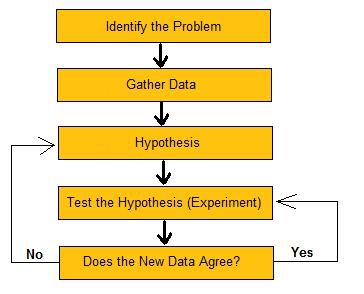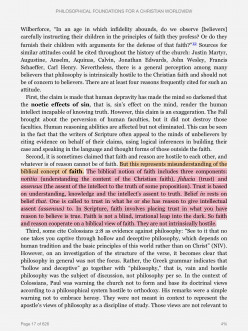Science, the Scientific Method and Their Detractors
- mbuggiehposted 11 years ago
0

The scientific method is by simple definition:
A "body of techniques for investigating phenomena, acquiring new knowledge, or correcting and integrating previous knowledge. To be termed scientific, a method of inquiry must be based on empirical and measurable evidence subject to specific principles of reasoning...[the scientific methods is] a method or procedure that has characterized natural science since the 17th century, consisting in systematic observation, measurement, and experiment, and the formulation, testing, and modification of hypotheses...The chief characteristic which distinguishes the scientific method from other methods of acquiring knowledge is that scientists seek to let reality speak for itself, supporting a theory when a theory's predictions are confirmed and challenging a theory when its predictions prove false." [Source: http://en.wikipedia.org/wiki/Scientific_method]
Note two very important points in this definition: (1) Science and the scientific method are open to "correcting" previous knowledge and to challenging previously held theories AND (2) Science enables "reality speak for itself" even when that reality challenges previously held theories.
Why, then, do anti-science activists and their allies (in society and government) claim that science is unreliable as a source of knowledge of reality simply because it sometimes needs correcting? I am not sure that "anti-science activists" exist. More often, people reject specific scientific "conclusions", not science itself. Most people will accept a scientific explanation of, say, how a light bulb works and not attribute the generation of light to magic or a supernatural origin. But some might reject the theories about the causes of global warming. A complex and chaotic environment is more difficult to analyze than a simple electrical circuit.
I think what you're saying is that people accept technology and engineering (for example: the light bulb), but not science---the stuff that underwrites technologies and engineering.
And, I agree with that, but I strongly disagree that an anti-science biases and anti-science activism is non-existent.
Clearly, we are at a cultural point of privileging religion (mythology) while working to discredit science---no matter what the subject.
How else can one explain 7 people seeking the Presidency of the United States raising their hands claiming to believe in Creationism and to reject evolutionary biology?
How else can we explain a persistent litmus test among conservative voters being whether or not a candidate is a Creationist and rejects evolutionary biology?
The idea that science and religion are inherently contradictory (the warring camp theory) has been discredited. There are no serious academics today who maintain that religion and scientific thought are mutually exclusive.
The problem comes when you get logical positivism (which also has been discredited).Science and FAITH are not contradictory, but science and religion can be and often are contradictory.
For example: Science tells us that the earth is billions of years old and that humans evolved over time. Religion---admittedly some religions and not all, tells us that the earth is barely thousands of years old and that humans arrived on it in the forms of Adam and Eve. Such thinking cannot be reconciled.Have you ever heard of "old earth creationism?"
I'd recommend this lecture series, lecture 2: http://www.thegreatcourses.com/tgc/cour … x?cid=4691
Your definition of faith is equivalent to "blind faith" right?
Well then, provided that you use you the "lack of belief" redefinition for atheism, aren't you staying that you believe something without knowledge, but isn't that in itself blind faith?Not playing this game.
Science is about facts and evidence.
Faith is about belief. Atheism too is a function of belief.
Belief is unrelated to science.
End of story.I would like to respectfully disagree if I may.
Science is about facts and evidence. Yes.
But the empirical method isn't the only way to know what is true about the world. We can use logic and reason as well to determine what is true. To say that the scientific method is the only way to "know" something, or "It isn't scientifically testable, and therefore cannot be true" is called logical positivism, which died in the 1960s. See: http://press.anu.edu.au//info_systems/m … 01s02.html
I don't agree with the definition that you use of faith. This is my understanding of the biblical concept:
In the words of Jung, "I don't believe, I know."
And so, like I said before in conjunction with that lecture series, the warring camps thesis is dead and buried.
You could repeat yourself and simply reassert your definitions, but that wouldn't be addressing my points in a rational manner.Don't you think using a definition of faith offered in the Bible and Scriptures---documents whose earthly authors and editors were deeply invested in maintaining their worldly authority, is at the very least problematic?
"whose earthly authors and editors were deeply invested in maintaining their worldly authority."
This seems like a vague and unsubstantiated generalization.
Problematic in what sense? Could you please spell it out for me?
- mbuggiehposted 11 years ago
0
Do some research on the Council of Nicaea (Nicea) for details and substantiation of my comments.
I'm already decently versed in Church history.
http://www.audible.com/pd/History/Churc … B00GTWYXTW
If you don't want to substantiate your remarks this conversation is probably over.
Related Discussions
- 67
The Devolution of National Politics in the United States
by mbuggieh 11 years ago
In May of 1950 President Harry Truman signed a bill---passed by Congress, that created the National Science Foundation. In signing the bill, Truman noted:"Throughout our history, scientists and scientific knowledge have contributed to our progress as a Nation. If you want to keep up that...
- 232
Subjective Truth vs Objective Truth
by emrldphx 13 years ago
For those who are interested, I am putting together a primer on the difference between subjectivity and objectivity. Much of the disagreement in this forum is due to confusion between the two. We'll start with a comparison of the definition of the terms.SubjectivitySubjectivity is a personal...
- 50
Is the scienctific method infallible?
by Andrew Petrou 10 years ago
Is the scienctific method infallible?Like many ancient religions modern scientists regard their methods to be infallible. Is this the right attitude?
- 248
Ignorance is not an Excuse
by Mark Knowles 13 years ago
Some one just accused me of making a personal attack on them because I said they are ignorant of certain facts. Any one who has interacted with me here will know I try not to make personal attacks, other than to make fun of people, and these threads are littered with snipped personal attacks on me...
- 160
Genbetic Homosexuality -Vs- Evolutionary Biology
by TMMason 15 years ago
As I see it. Only one of these things can exist. They are mutually exclusive ideas. If not? Then explain how they are not.Cause I don't see it. You can have one, or the other, not both.I simply ask because I am a humble man. Who would be more than willing to reconcile these two ideas. If possible....
- 197
Science is deaf and dumb
by paarsurrey 13 years ago
Science of itself does not present claims and reasons on issues; others interpret it wrongly; it is a useful tool of the humanity ; and if interpreted correctly it is not in contradiction of the truthful religion.








